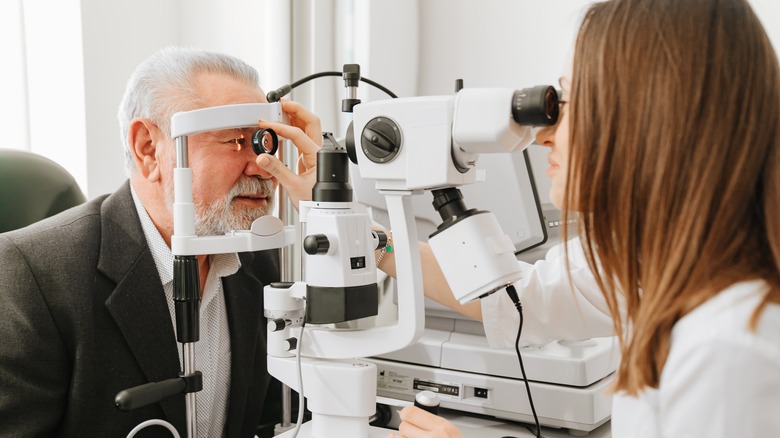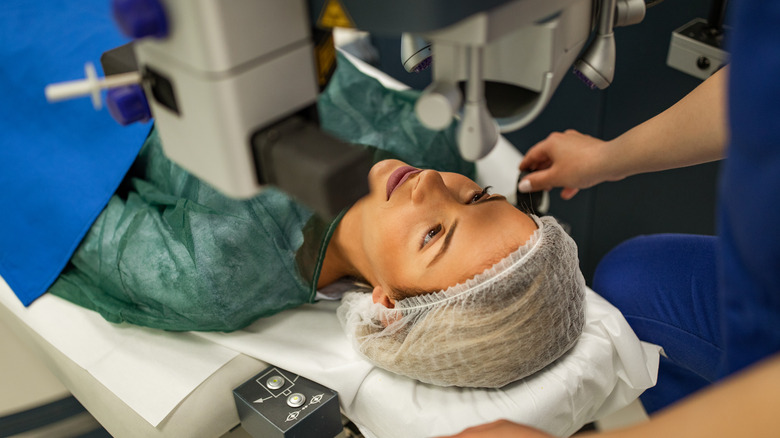Expert Tips On What To Do The Night Before Cataract Surgery
Cataracts are cloudy patches that occur when proteins in the lens of the eye clump together. People with cataracts might notice their vision getting hazy or they might have difficulty seeing in low-light conditions. Cataracts typically occur as you age, and more than half of people over 80 have had cataracts. If cataracts are untreated, they can lead to blindness (via National Eye Institute).
When your vision is 20/40 or you have problems with glare or nighttime driving, it might be time to have cataracts surgery, says Dr. Jeff Dello Russo, a board-certified ophthalmologist and Medical Director of the Bergenfield Outpatient Ophthalmic Surgery Center. In an exclusive interview with Health Digest, Dello Russo tells us how to prepare for cataract surgery.
You and your ophthalmologist should discuss your regular medications prior to the surgery, so avoid any medications not approved by your doctor. After dinner the night prior to your procedure, Dello Russo suggests avoiding late snacking or drinking because you'll have either local or general anesthesia for your surgery. Your doctor might also give you eye drops to prepare for your procedure.
What to expect the day of your cataract surgery
Dr. Dello Russo says cataract surgery is a simple outpatient surgery, so you can dress comfortably for the procedure since you don't need a hospital gown. He suggests having an extra t-shirt in case some fluids drip from your eyes. Leave any jewelry at home, and avoid heavy fragrances and harsh facial cleansers that morning. Before leaving for the doctor's office, bring your health records and any additional information with you. You won't be able to drive home after the procedure, so arrange for someone to drive you home.
Dr. Dello Russo says when you arrive for the procedure, you'll be given anesthesia. The doctor will only correct one eye per procedure, so you'll need to revisit the office a week later for the other eye. "Once we finish, the patient is given time to wake up from the anesthetic and is sent home shortly after and is prescribed specific eye drops to aid in the recovery process," Dr. Dello Russo said. "Most of our patients see immediate improvement — best described as being able to see underwater — and are able to go back to work/driving the next day with little to no pain."
He adds that at first, lights will seem really bright, but that will go away. After cataract surgery, you'll also need to put eyedrops in your eyes for a month.

